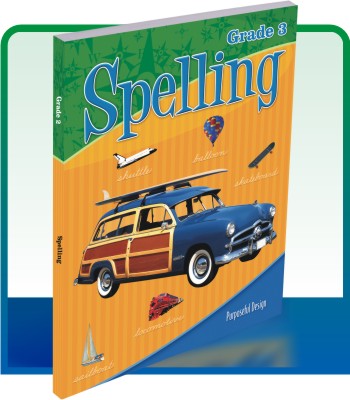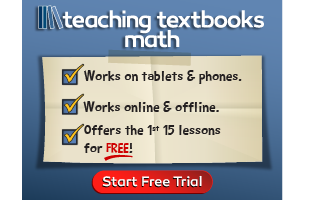Research on what methods work best for teaching spelling dictates the methods used in this spelling series for grades 1 through 6. Three strategies used for spelling instruction reflect that research: sound-letter relationships, visual memory, and meanings.
Sound-letter relationships (phonics) are taught first. Then work on visual memory helps students to identify which of the various phonetic possibilities is correct. "Meanings" refers to the fact that many words are related (derived from the same base words), and by studying bases, prefixes, and suffixes, you can identify words of related meaning, thus making connections that also help with spelling. While all three strategies are used throughout the program, sound-letter relationships are emphasized in the first two grade levels.
Word lists are purposely not presented as word families but instead are designed to teach most-frequently-used words as well as spelling rules. Room for the addition of what are called "Home Base" words—extra words that are added to the list by the teacher—is allowed within each lesson along with space to practice writing using those words.
Writing/composition activities are a major part of each spelling lesson at all levels, and a number of these incorporate Bible topics. In fact, strong Christian content is apparent throughout the series.
Teacher's editions are useful for understanding the philosophy behind the program and for understanding such things as the use of the "First Look" test process and "Home Base" words. This "front" information is the same for all levels. Activities, sample sentences, related devotional suggestions, and reduced copies of student pages with answers are also found in the teacher's editions. If sample sentences and an answer key are not important to you, I still suggest purchasing one teacher's edition (even if you are teaching more than one student level) because of the "front" information.
Grade One
In the first grade book, there are no spelling lists for the first twelve weeks' worth of lessons. Instead, attention is first devoted to phonetic foundations. This feature makes this one of the better spelling programs for beginners. Children also work on visual memory and writing activities, where they are encouraged to use invented spellings for words they do not know--a feature that will certainly alienate or attract some parents! Large print and colorful format following a circus theme make the book appealing and easy-to-use. Activities stretch beyond spelling to include practice with alphabetizing, synonyms, sentences, punctuation, capitalization, contractions, and other skills.
Grade Two
At second grade level "The Neighborhood" is the theme. Students work on rhyming words, context clues, definitions, antonyms, poetry, creative writing, and letter writing, in addition to skills introduced at first grade level. Word lists appear in both manuscript and typeset formats but not in cursive. Students are encouraged to begin work on a Dialogue Journal (described in the teacher's edition).
Grade Three
"Transportation" is the theme for this level, and the emphasis shifts from phonics to visual memory although phonics is not ignored. Word lists appear in manuscript, cursive, and typeset formats. There is more work with words in context, use of the dictionary, and definitions than in earlier levels.
Grade Four
Phonetic principles are reviewed, and visual memory skills are developed. Word lists appear in cursive and typeset formats. New skills are syllabication, accented syllable, the use of the schwa, and higher level thinking skills. This level's teacher edition adds suggestions for small group or partner activities (usually not useful for home educators), and strategies for meeting needs of children with different learning styles.
Grade Five
The emphasis changes to word meaning for fifth and sixth grade levels. In addition to spelling word lists, most lessons also include charts of words related to the spelling words. All basic phonics principles and spelling rules are reviewed through the fifth and sixth grade levels. Exceptions are also studied. Skills incorporated include vocabulary development, use of words in context, word origins, prefixes and suffixes, expanding forms of words, parts of speech, proofreading, dictionary work, and research. The fifth grade book uses the theme "The Word Power Team" with characters such as Captain Consonant and Sam Synonym.
Grade Six
The theme for this level is "Sports." Many writing activities involve Bible-related topics or verses.









